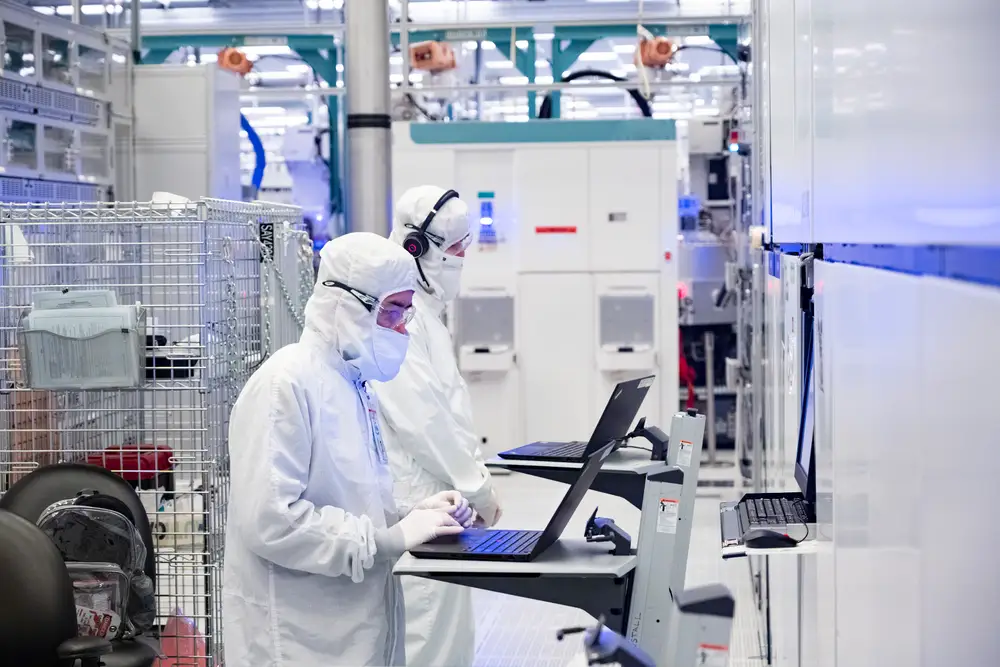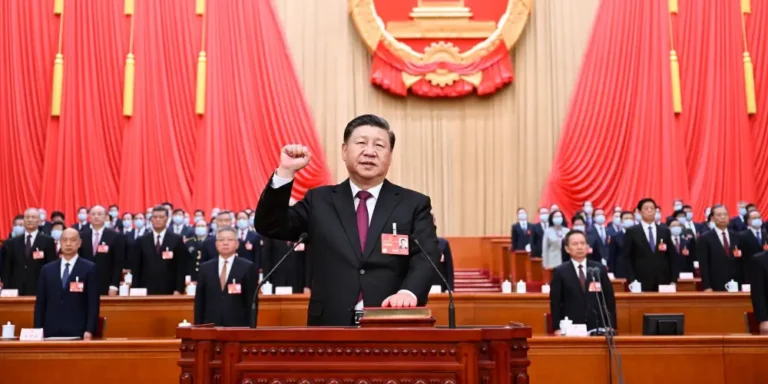Biden launched a US chipmaking boom. The jobs boost will come under Trump.

Biden launched a US chipmaking boom. The jobs boost will come under Trump.
The Biden administration’s efforts to boost US semiconductor manufacturing and employment could bear fruit during the Trump administration.
During his term, Biden secured commitments from five of the world’s leading chip manufacturers —TSMC, Intel, Samsung, Micron, and SK Hynix — to build factories in the US as part of an effort to shore up production of the critical technology. Semiconductor chips power a wide variety of products, including iPhones, pickup trucks, washing machines, and military equipment.
However, many of these factories are still in various stages of construction, and for some, it will be years before they’re producing chips. Much of the hiring for manufacturing roles could come under president-elect Donald Trump or a future administration, experts told B-17
Jeff Koch, an analyst at the semiconductor research and consulting firm SemiAnalysis, told B-17 that the current building of US chip factories has already created construction jobs. However, Koch said that the anticipated boost in semiconductor manufacturing employment hasn’t materialized yet.
Koch and Stephen Ezell, the vice president for global innovation policy at the Information Technology and Innovation Foundation, said manufacturing jobs would likely be realized during the Trump administration.
“The longer it takes to get the funds disbursed and the projects fully underway, then the longer it takes to get to full hiring for construction of the facilities and the operational staffing of them once they’re complete,” said Ezell, referring to CHIPS Act funding that the five leading chipmakers — in addition to other semiconductor companies — have been allocated from the Biden administration.
The chipmakers are expected to receive some of the $39 billion in manufacturing incentives tied to the CHIPS Act, which President Joe Biden signed into law in 2022. The Biden administration is trying to finalize funding agreements before Trump — who has criticized the CHIPS Act — takes office in January.
The US could see about 42,000 direct jobs at the companies building these factories and 101,500 indirect jobs at chipmakers’ suppliers, per a report published in 2021 by the Semiconductor Industry Association — a trade association and lobbying group — that said a $50 billion investment would help create an estimated 10 additional chip factories in the US.
To be sure, it’s not uncommon for the benefits of a president’s policy initiative to see gains after the leader leaves office. This is a reality Biden understands.
“Much of the work we’ve done is already being felt by the American people, but the vast majority will not be felt, will be felt over the next 10 years,” Biden said in November about his administration’s policies.
Additionally, the construction of chip factories is particularly complicated, and it often takes years for these projects to be completed.
“This is the world’s most complex technology,” Jimmy Goodrich, senior advisor for technology analysis to the RAND Corporation, said of semiconductors. “You’re talking about producing transistors — billions on a single chip — each of them is 20 to 30,000 times smaller than the human hair.”
B-17 reached out to TSMC, Intel, Samsung, Micron, and SK Hynix to confirm the latest status of their US-based chip factories under construction. The table below shows where the chipmakers have committed to building factories in the US. Intel declined to provide estimated completion dates for its four factories.

When reached for comment, the Trump-Vance transition team didn’t respond to a question about Trump’s plans to boost US semiconductor manufacturing employment.
Building chip factories takes time
Koch said Taiwan-based TSMC began hiring over two years ago. The company is expected to begin full production levels — B-17 previously reported it already started making chips for Apple — at its first Phoenix factory early next year after facing some delays.
TSMC is projecting that its second and third chip Phoenix-based factories will begin production in 2028 and by the end of the decade, respectively. The second factory was initially slated for a 2026 opening.
Micron, which is based in Boise, Idaho, has five factories in the works — four in Clay, New York, and one in Boise. The Boise factory is expected to begin production in 2026, the company told B-17, but Micron’s Clay factories have faced some delays.
SK Hynix, which is based in South Korea, expects to begin mass chip production at its West Lafayette, Indiana factory in the second half of 2028. Samsung is projecting that it will begin chip production at its chip factory in Taylor, Texas in 2026. In October, Reuters reported that Samsung has postponed taking deliveries of chipmaking equipment because it has yet to land any major customers for the project.
The Commerce Department said that TSMC, Intel, Micron, Samsung, SK Hynix, and TSMC are “five of the world’s leading and most advanced leading-edge logic and leading-edge memory chip manufacturers.” The Commerce Department added that building chip factories is a very intensive and complex construction project — and that it often takes three to five years before factories are fully constructed and operational.
While creating US semiconductor manufacturing jobs would be good news for the people who eventually land these roles, Chris Miller, a nonresident senior fellow at the American Enterprise Institute who focuses on semiconductors, told B-17 that he thinks the Biden administration’s main goal was to boost US chip manufacturing. Doing so could help secure US supply chains and make the country less reliant on advanced chips made in Taiwan.
“The point is to have more chip manufacturing, which will mostly come over the next few years,” he said.






